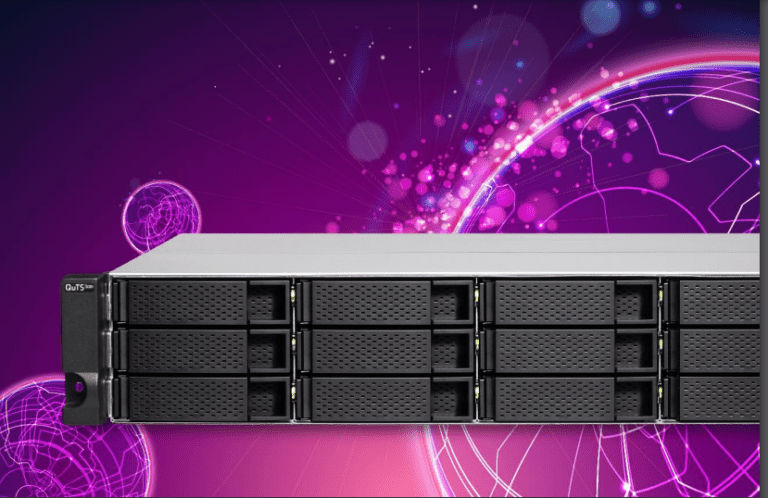QNAP unveiled the TS-h1886XU-RP R2 NAS solution. According to QNAP, the release is especially suitable for virtualization and data-intensive apps.
The new NAS solution is aimed at businesses with proprietary data centers. TS-h1886XU-RP R2 helps handle increasingly common virtualized and data-intensive applications.
Composition of NAS Solution
The NAS system runs on QuTS hero, a ZFS-based file system. The release features an Intel Xeon D-1622 processor and 32GB DDR4 Error Correcting Code (ECC) memory with a maximum capacity of 128GB. Network capacity peaks at 10GbE, divided into four 2.5GbE ports.
The configuration provides reliable server-level performance for centralized file storage, virtualization, backup, disaster recovery and gateway functionality for cloud-based storage.
Other features include a 2U rack format, twelve 6GB/s 3.5-inch SATA drive bays, and six 6GB SSD 2.5-inch SATA slots. The NAS solution also features three PCIe slots. One of the slots houses a pre-installed 10GbE SFP+ network expansion card. This card supports powerful RDMA protocols including ROCE and RoCEv2.

QuTS hero OS
The operating system (QuTS hero) provides data integrity, self-recovery and WORM compliancy (Write Once, Read Many Times). The operating system also supports data deduplication and compression technology for optimal storage utilization, faster data transfers and longer SSD life. Furthermore, the OS provides functionality for up to 65,535 snapshots and real-time SnapSync for recording system status and data.
The newly launched QNAP NAS system can be expanded with additional applications and features through the QNAP App Center. Extra’s include hosting VMs and containers, Google Workspace and Microsoft 365 Backup, VMware and Hyper-V backup, hybrid cloud storage gateways and VPN functionality with WireGuard VPN.
The QNAP TS-h1886XU-RP R2 NAS system is available immediately.
Tip: Thousands of QNAP NAS devices hit by DeadBolt ransomware attack
